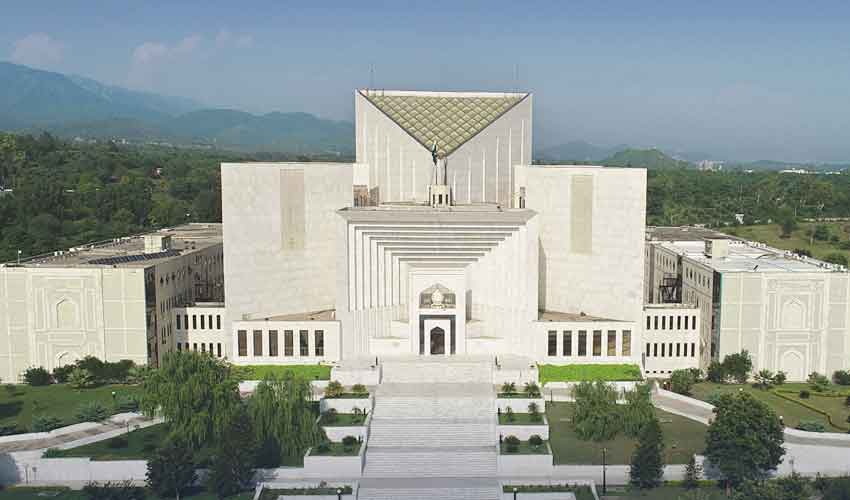ISLAMABAD, November 18, 2024 – The Supreme Court’s Constitutional Bench has dismissed a petition that sought to mandate that only candidates securing more than 50% of the votes in an election could be declared successful.
The petitioner, Muhammad Akram, was also fined Rs. 20,000 for filing the petition. The case was heard a seven-member bench headed by Justice Aminuddin Khan.
During the proceedings, Justice Muhammad Ali Mazhar questioned the petition’s premise, asking why the Constitution would require a 50% vote threshold, and emphasized that election outcomes are determined by the votes cast.
Read More: Supreme Court’s Constitutional Bench Begins Frist Hearing
Justice Ayesha Malik raised concerns about the petitioner’s claim that his fundamental rights had been violated, urging him to specify which constitutional provisions had been affected.
She underscored that lawmaking is the domain of Parliament, not the judiciary.
The petitioner argued that his plea was connected to the protection of fundamental rights, asserting that Parliament’s decisions have a direct impact on citizens’ lives.
However, Justice Aminuddin Khan countered, stating that Parliament provides representation, not a direct decision on the course of citizens’ lives.
Also Read More: PTI Seeks Larger Bench in Supreme Court for Intra-Party Election Case
Justice Musarrat Hilali noted the issue of voter apathy, pointing out that many voters choose to abstain from casting their ballots.
The petitioner admitted that he himself had not voted in the February 2024 elections, prompting Justice Jamal Mandukhel to chastise him for insulting the Constitution.
In a sarcastic remark, the petitioner suggested that imposing a fine of Rs. 100 billion would help address the country’s debt issues. Justice Aminuddin Khan swiftly rejected this, saying, “That is not your position to decide.”
The case raised significant questions about electoral participation and the role of the judiciary in matters of constitutional interpretation.
The Court’s decision reinforced the principle that electoral outcomes are based on the votes cast by citizens, and that the legislature, not the judiciary, is responsible for determining electoral rules.
In addition to dismissing the petition, the Court imposed a fine of Rs. 20,000 on the petitioner, signaling its disapproval of what it deemed to be a frivolous legal challenge.

